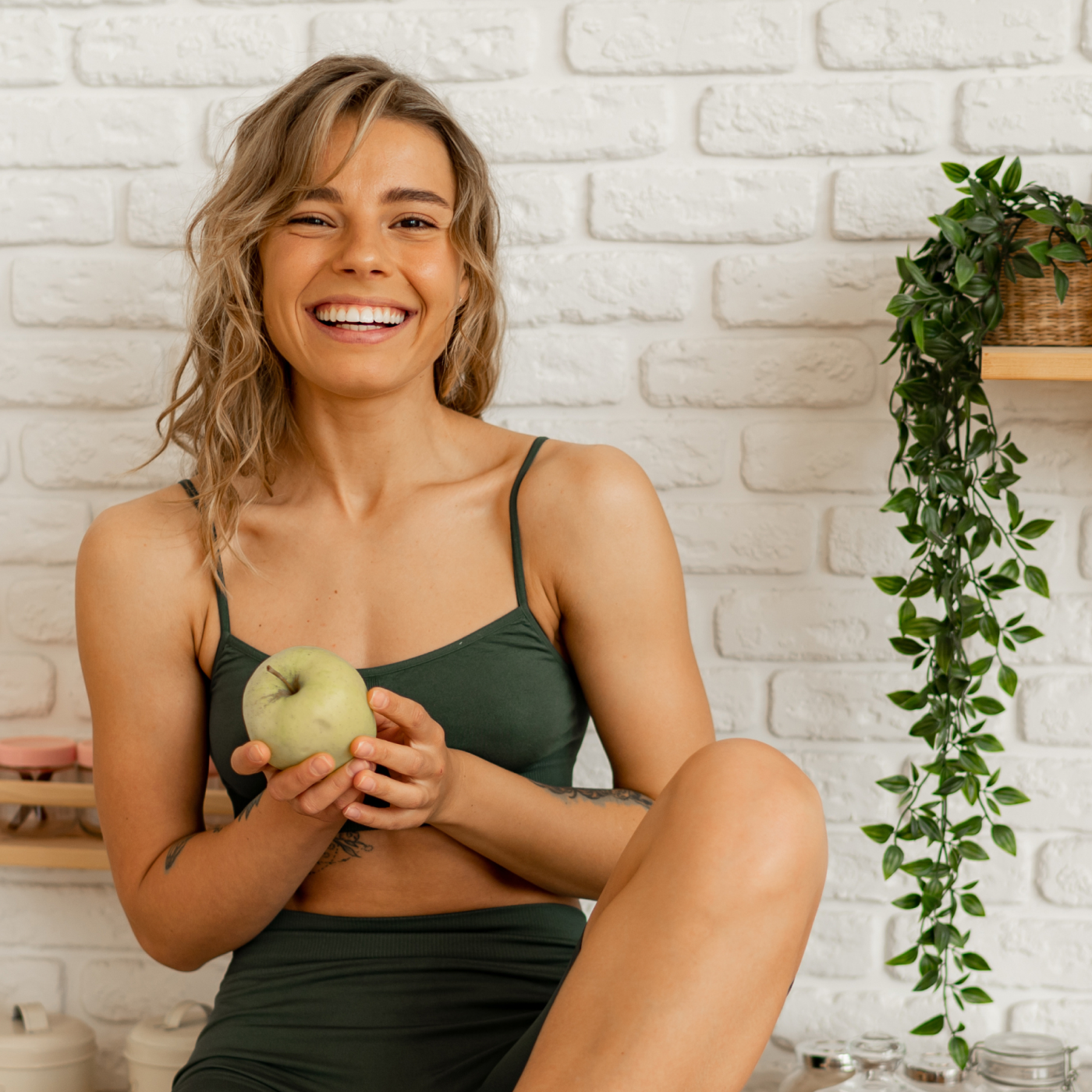The Sleep–Stress connection: Protect your glow

When you’re stressed and short on sleep, your skin often shows it first. Dull tone, more fine lines, new breakouts, or a reactive, tight feeling are common signals. The reason goes deeper than a late night: stress and poor sleep increase oxidative stress—an imbalance between free radicals and your skin’s defenses. The good news: by protecting your recovery window and supporting your antioxidant network with smart nutrition—magnesium, vitamin C, and polyphenols—you can help your skin look calmer, brighter, and more resilient.
What happens to your skin under stress and short sleep
- Cortisol and inflammation: Psychological stress raises cortisol. Chronically high cortisol can disrupt collagen (the protein that contributes to skin elasticity) turnover, increase inflammation, and slow repair.
- Oxidative stress: Free radicals from stress, UV light, and pollution can outpace your skin’s antioxidant defenses. This contributes to dullness, uneven tone, and the appearance of fine lines.
- Barrier function and hydration: Poor sleep impairs the skin barrier (your outer defense layer), increasing transepidermal water loss. Skin may feel tight or more sensitive.
- Microcirculation: Sleep supports healthy blood flow. When you miss it, your skin may look less vibrant or puffy.
- Breakouts: Stress can nudge sebum production and disrupt your microbiome, increasing the chance of clogged pores.
Why recovery is your beauty accelerator
Nighttime is when skin leans into repair—DNA fixes damage, cells renew, and barrier lipids rebuild. Consistent, quality sleep reduces cortisol, restores antioxidant capacity, and supports collagen maintenance. Think of your evening routine as a built-in “glow treatment.”
Your nutrient toolkit: magnesium, vitamin C, and polyphenols
Magnesium
- Why it matters: Magnesium supports normal nervous system and muscle function and plays a role in energy metabolism. It helps the body manage stress responses and supports sleep quality—both essential for skin recovery.
- Food sources: Pumpkin seeds, almonds, cashews, leafy greens, whole grains, cacao.
- Practical tip: Build a magnesium-rich dinner plate—whole grains + greens + nuts. If your intake is low, a supplement may help cover needs, especially during stressful periods.
Vitamin C
- Why it matters: Vitamin C is a cornerstone antioxidant in skin. It supports collagen formation and helps regenerate vitamin E in the antioxidant network, contributing to a brighter, more even-looking complexion.
- Food sources: Kiwi, citrus, strawberries, bell peppers, broccoli, parsley.
- Practical tip: Aim to include a vitamin C–rich food at most meals. Pair with iron-containing plants (like lentils) to support iron absorption—another nod to healthy-looking skin tone.
Polyphenols
- Why they matter: Polyphenols are plant compounds (a type of antioxidant) that help neutralize free radicals and modulate inflammatory signaling. A diverse mix supports your internal “antioxidant web.”
- Food sources: Berries, cherries, grapes, olives, cocoa, green tea, extra-virgin olive oil, colorful spices (turmeric, ginger), herbs.
- Practical tip: Eat the rainbow. Rotate berries, leafy greens, and spice blends to broaden your polyphenol intake across the week.
Other supportive players
- Omega-3: These fatty acids are important for heart health and can support a calm skin appearance and barrier comfort. Find them in fatty fish, algae oil, walnuts, and flaxseed.
- Collagen: A structural protein that contributes to skin elasticity. Vitamin C supports normal collagen formation—consider pairing vitamin C–rich foods with your collagen routine.
- Zinc and selenium: Minerals that support normal antioxidant enzymes. Include nuts, seeds, legumes, seafood, and eggs as part of a varied diet.
Your evening recovery routine (simple and effective)
- Two hours before bed: Dim lights and reduce stimulating screens. Your sleep hormone melatonin follows light cues.
- One hour before bed: Swap high-intensity work for relaxing activities—reading, gentle stretching, or a warm shower. If you enjoy herbal tea, lemon balm or chamomile are soothing choices.
- Light, skin-friendly dinner: Focus on protein + colorful plants + healthy fats. Examples: salmon with roasted vegetables and olive oil; tofu–veg stir-fry with brown rice; lentil salad with peppers and parsley. Include a magnesium or vitamin C source.
- Smart snacks (if needed): Greek yogurt with berries, a kiwi, or a small handful of nuts and dark chocolate (70%+ cacao for polyphenols and magnesium).
- Hydration timing: Drink steadily through the day; taper in the last hour to reduce night wakings.
- Gentle skincare: In the evening, cleanse, then apply a vitamin C derivative or a soothing antioxidant serum (green tea, resveratrol, or niacinamide), followed by a barrier-focused moisturizer. In the morning, apply vitamin C and always finish with SPF.
Stress resets you can actually keep
- 5-minute breathing: Try 4-6 breathing—inhale for 4, exhale for 6—for five minutes. This calms your nervous system and can lower perceived stress before bed.
- Micro-movement: A 10–15 minute evening walk supports digestion and helps you shift out of “work mode.”
- Thought parking: Jot down tomorrow’s tasks. This clears mental clutter and makes it easier to fall asleep.
- Consistent sleep window: Aim for a regular sleep and wake time, even on weekends, to anchor your circadian rhythm.
Build your plate: a sample “recovery day”
- Breakfast: Oats with chia, berries, and yogurt (vitamin C, polyphenols, protein) or a tofu scramble with spinach and tomatoes.
- Lunch: Quinoa bowl with chickpeas, roasted peppers, broccoli, olive oil, and pumpkin seeds (magnesium, vitamin C, polyphenols, healthy fats).
- Snack: Kiwi and a few almonds or green tea with a square of dark chocolate.
- Dinner: Trout or tempeh with sweet potato and greens; drizzle with extra-virgin olive oil; finish with a citrus side salad.
Your action plan in 5 steps
- Protect your sleep window: 7–9 hours for most adults, lights down and devices off 60 minutes before bed.
- Eat the rainbow daily: berries, greens, tomatoes, citrus, herbs, and spices for broad polyphenol coverage.
- Prioritize magnesium foods: nuts, seeds, whole grains, and leafy greens; consider a supplement if your intake falls short.
- Add vitamin C anchors: include a C-rich food at 1–2 meals per day and pair with your collagen routine if you use one.
- Manage stress in mini-doses: five minutes of breathing, a short walk, or light stretching can meaningfully shift your stress load.
Bottom line
Recovery powers your glow. By sleeping well, managing stress, and feeding your body an antioxidant-rich diet—magnesium, vitamin C, and polyphenols at the core—you support collagen, calm inflammation, and strengthen your skin’s defenses. Small, consistent habits add up. Start tonight.
Note: Dietary supplements are not a substitute for a balanced diet and healthy lifestyle. If you have health concerns or take medication, please consult a qualified professional before using supplements.










